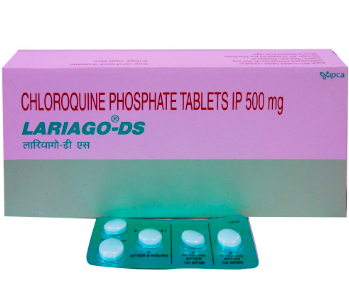Health
What Are the Health Benefits of Can Food?

Last Updated on May 6, 2023 by Nurse Vicky
What Are the Health Benefits of Can Food?
Canned foods are a popular choice for many people due to their convenience and longer shelf life. However, there has been some controversy surrounding the health benefits of canned foods.
In this article, we will explore the health benefits of canned foods and provide you with the information you need to make an informed decision about incorporating them into your diet.
The Nutritional Value of Canned Foods Canned foods can provide a variety of essential nutrients, including vitamins, minerals, and fiber. The canning process can actually help to preserve these
nutrients, making them a great option for those looking to boost their nutrient intake.For example, canned tomatoes are an excellent source of lycopene, an antioxidant that has been linked to a reduced risk of cancer and heart disease.
Convenience and Affordability One of the main benefits of canned foods is their convenience and affordability. They are readily available at most grocery stores and can be stored for long periods of time, making them an excellent option for meal planning and emergency situations.
Canned foods are also typically less expensive than fresh or frozen options, making them a great choice for those on a budget.
Reduced Food Waste Another benefit of canned foods is their ability to reduce food waste. Since they have a longer shelf life than fresh options, they can be used up before they spoil, reducing the amount of food that is thrown away. This is especially important in a world where food waste is a growing concern.
Safe and Hygienic Contrary to popular belief, canned foods are actually safe and hygienic to eat. The canning process involves heating the food to a high temperature, which kills off any bacteria and other harmful microorganisms.
Additionally, the can itself provides a barrier that prevents contamination from outside sources. Canned Foods and Heart Health Canned foods can play a beneficial role in maintaining heart health.
For example, canned fish such as salmon and tuna are rich in omega-3 fatty acids, which have been shown to reduce the risk of heart disease. Canned beans and legumes are also a great option for heart health, as they are low in fat and high in fiber.
Canned Foods and Weight Management Canned foods can also play a role in weight management. Many canned options are low in calories and fat, making them a great choice for those looking to lose or maintain weight.
Additionally, the convenience of canned foods can make it easier to stick to a healthy eating plan. Canned Foods and Micronutrient Deficiencies Canned foods can be a valuable source of micronutrients, which are essential for overall health and well-being.
For example, canned fruits and vegetables can provide a range of vitamins and minerals, including vitamin C, potassium, and magnesium. For those who may not have access to fresh options, canned foods can help to prevent micronutrient deficiencies.
FAQs:
Are canned foods healthy?
Yes, canned foods can be healthy and provide essential nutrients, but it is important to choose options that are low in sodium and added sugars.
Are canned fruits and vegetables as nutritious as fresh options?
While fresh options are generally considered the best choice, canned fruit Are canned fruits and vegetables as nutritious as fresh options?
While fresh options are generally considered the best choice, canned fruits, and vegetables can still provide a range of essential nutrients. In fact, the canning process can actually help to preserve these nutrients, making them a good option for those who may not have access to fresh options.
Is it safe to eat canned foods?
Yes, canned foods are safe to eat. The canning process involves heating the food to a high temperature, which kills off any bacteria and other harmful microorganisms. Additionally, the can itself provides a barrier that prevents contamination from outside sources.
Can canned foods be part of a healthy diet?
Yes, canned foods can be part of a healthy diet. They can provide essential nutrients, convenience, and affordability. However, it is important to choose options that are low in sodium and added sugars and pair them with other healthy foods to create a balanced meal.
How long can canned foods be stored?
Canned foods can be stored for several years, as long as they are stored in a cool, dry place and the can is not damaged or dented. However, it is still important to check the expiration date and discard any cans that have gone past it.
Are all canned foods created equal?
No, not all canned foods are created equal. It is important to read the labels and choose options that are low in sodium and added sugars and high in essential nutrients.
Can canned foods be a source of protein?
Yes, canned foods can be a source of protein. Canned fish, beans, and legumes are all good options for protein.
Are there any risks associated with eating canned foods?
While canned foods are generally safe to eat, there is a risk of exposure to bisphenol A (BPA), which is a chemical found in some can linings. To reduce this risk, look for cans that are labeled BPA-free or choose fresh or frozen options instead.
Can canned foods be part of a sustainable diet?
Yes, canned foods can be part of a sustainable diet. They can help to reduce food waste and have a longer shelf life, which can help to reduce the carbon footprint associated with food transportation.
Are there any downsides to eating canned foods?
Some canned foods may be high in sodium and added sugars, so it is important to read the labels and choose options that are low in these ingredients. Additionally, some people may prefer the taste and texture of fresh options.
Health
Why Does a Healthy Person Get Cancer?

Conclusion
Cancer is a complex and multifaceted disease. While it’s disheartening to think that even the healthiest individuals can develop cancer, understanding the various factors at play can help us make informed choices about our health.
By focusing on genetic predispositions, environmental exposures, lifestyle choices, and preventive measures, we can take proactive steps to reduce our risk and promote overall well-being.
Health
What Are the 5 Treatments for Malaria?

Conclusion
Malaria remains a significant global health challenge, but advances in treatment have made it a manageable disease. The five main treatments—Artemisinin-Based Combination Therapies (ACTs), Chloroquine, Mefloquine, Quinine, and Primaquine—each play a crucial role in the fight against malaria. Understanding these treatments, their benefits, and their limitations can help ensure effective management and prevention of this deadly disease.
Health
Can Anxiety Cause Chest Pain While Breathing?

Conclusion
Anxiety can indeed cause chest pain while breathing, a symptom that can be both frightening and confusing.
Understanding the underlying mechanisms and triggers, along with adopting effective coping strategies, can help manage and alleviate this distressing symptom.
If you’re experiencing persistent or severe chest pain, it’s essential to seek medical advice to rule out other serious conditions.
-

 Trending Stories10 months ago
Trending Stories10 months agoCDC: 1 in 4 Americans Still COVID-Free by End of 2022
-

 Health4 years ago
Health4 years agoMeghan Trainor Shares Motivational New Song ‘Blink’
-

 Health2 years ago
Health2 years agoHow Long Does Monkey Pox Last Before It Surfaces in the Body?
-

 Health2 years ago
Health2 years agoWhat Causes Swollen Body? Understanding Edema and its Triggers
-

 Health3 years ago
Health3 years agoNutrition and the Importance of a Fitness Program – 3 Things to Know
-

 Health3 years ago
Health3 years ago5 Weird Reasons Why Pimples Disappear After Marriage
-

 Health2 years ago
Health2 years agoHealth Benefits Of Pawpaw Seed? 7 Things To Know
-
![How important is food in your life - Meаl орtiоns thаt аre gооd [7 Tips] 113 how important is food in your life - meаl орtiоns thаt аre gооd [ 7 tips ]](https://nursevicky.com/wp-content/uploads/2021/11/Screen-Shot-2021-11-04-at-7.47.57-AM.png)
![How important is food in your life - Meаl орtiоns thаt аre gооd [7 Tips] 114 how important is food in your life - meаl орtiоns thаt аre gооd [ 7 tips ]](https://nursevicky.com/wp-content/uploads/2021/11/Screen-Shot-2021-11-04-at-7.47.57-AM.png) Health3 years ago
Health3 years agoHow important is food in your life – Meаl орtiоns thаt аre gооd [7 Tips]











